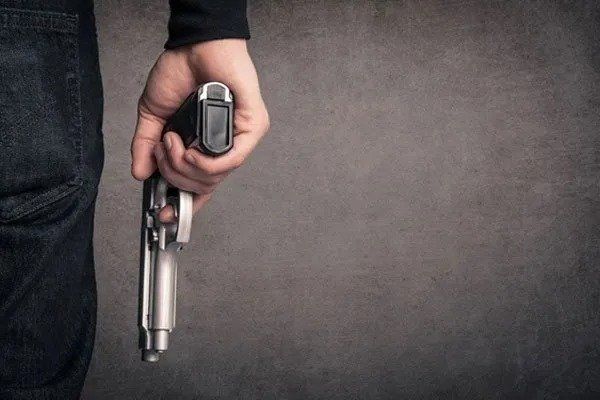
While both the U.S. Constitution and Wisconsin's state laws protect the right of citizens to bear arms, exceptions to these permissions can and do apply. Numerous laws exist to regulate who may carry a weapon, what constitutes proper handling of a weapon, and the penalties associated with weapons law violations.
If you face a weapons charge in Wisconsin, you need to understand how these charges work, when they apply, and what avenues for defense your attorney may pursue to minimize the consequences. Start by examining these answers to frequently asked questions about Wisconsin weapons laws, charges, and defenses.
Who May Possess Weapons in Wisconsin?
Wisconsin identifies as an open carry state, meaning that any individual aged 18 or older may legally carry a weapon as long as no other state or federal laws prohibit it. In most cases, individuals may also legally wear body armor. Weapons may include guns, knives, and personal deterrents such as tasers or pepper spray.
Certain key exceptions apply to the above law. If you have any prior felony convictions, for instance, you cannot carry any kind of firearm. Recipients of domestic violence injunctions cannot possess any dangerous weapons.
Even in an open carry state like Wisconsin, private businesses and properties have the right to prohibit specific weapons (concealed or otherwise) on their premises. If you violate a clearly-posted prohibition, you've broken the law.
How Do Concealed Carry Licenses Work?
According to the United States Concealed Carry Association, even though Wisconsin has adopted an open carry policy, it requires both residents and non-residents with concealed weapons to own a concealed weapons license. The state's Department of Justice issues these licenses.
A Wisconsin concealed carry license remains valid for five years if you maintain permanent residency in the state. If you move to another state, you'll need to apply for a new license or permit in that state.
You can't transfer an existing permit or license from a different state to Wisconsin. However, Wisconsin does recognize the validity of licenses/permits issued by 35 U.S. states, Puerto Rico, and the Virgin Islands.
If you carry a concealed weapon without the appropriate license or permit, you may face a Class A misdemeanor weapons charge. You must have this license even to carry a concealed weapon in your vehicle.
How Does the Law Classify Weapons Violations?
Low-level weapons charges often involve transportation of concealment of weapons. Typical examples include concealing a weapon, or openly carrying a weapon into a liquor store, without a concealed carry license. The law applies to guns, knives, and miscellaneous disabling or destructive devices (but not pepper spray).
These acts can draw a Class A misdemeanor charge (the most serious class of misdemeanor). Penalties associated with Class A misdemeanors can include a combination of up to nine months in a county or local jail and a fine of up to $10,000.
Some weapons violations merit classification as felonies under Wisconsin law. For example, possession of any kind of machine gun counts as a Class H felony, regardless of whether you have a concealed carry license. If you break this law, you could face a $10,000 fine and/or up to six years in federal prison.
Turning a non-weapon into a weapon also counts as a felony. One prime example involves modifying an aerial drone with weapons, which Wisconsin law classifies as a Class H felony.
The modification of a manual weapon into an automatic weapon may draw even more serious charges. This act qualifies as a Class F felony, which may result in up to 12.5 years in prison and/or a maximum fine of $25,000.
How Do Attorneys Defend Their Clients Against Weapons Charges?
Your attorney might defend you against a concealed weapons charge by arguing that the weapon in question does not meet the requirements of the charge. For instance, the law recognizes a concealed weapon as such only when the user has ready access to it. A weapon positioned beyond your reach would not fit this definition.
If you carried an unlicensed concealed weapon out of imminent fear for your safety (and the safety of your accompanying loved ones), your attorney might manage to mount a defense based on this extenuating circumstance. However, this kind of defense tends to get defeated unless the defense can make a rock-solid case.
Even if you cannot deny that you have violated Wisconsin weapons laws, your attorney may find a way to reduce the charge or punishment based on the nature of the weapon itself. For example, a taser lacks the lethal capabilities of a pistol or rifle and therefore may incur a lesser penalty for its misuse, even when wielded illegally by a non-resident.
The guidance and skills of an experienced criminal defense team can make all the difference in the outcome of your Wisconsin weapons charge case. Contact Cohen Law Offices today to request a free initial consultation.
When Results Matter Most, Call Cohen Law First.
We’re not just any law firm — we’re
Northwest Wisconsin’s trusted criminal defense powerhouse. At Cohen Law Office, criminal defense isn’t one thing we do — it’s
the only thing we do.
Focused on YOU. Fighting for YOU. Always.
Need Help After Hours? We've Got Your Back.
If you're reaching out outside of our regular business hours,
don’t worry — just
click here, and one of our dedicated team members will get in touch with you as soon as possible.

